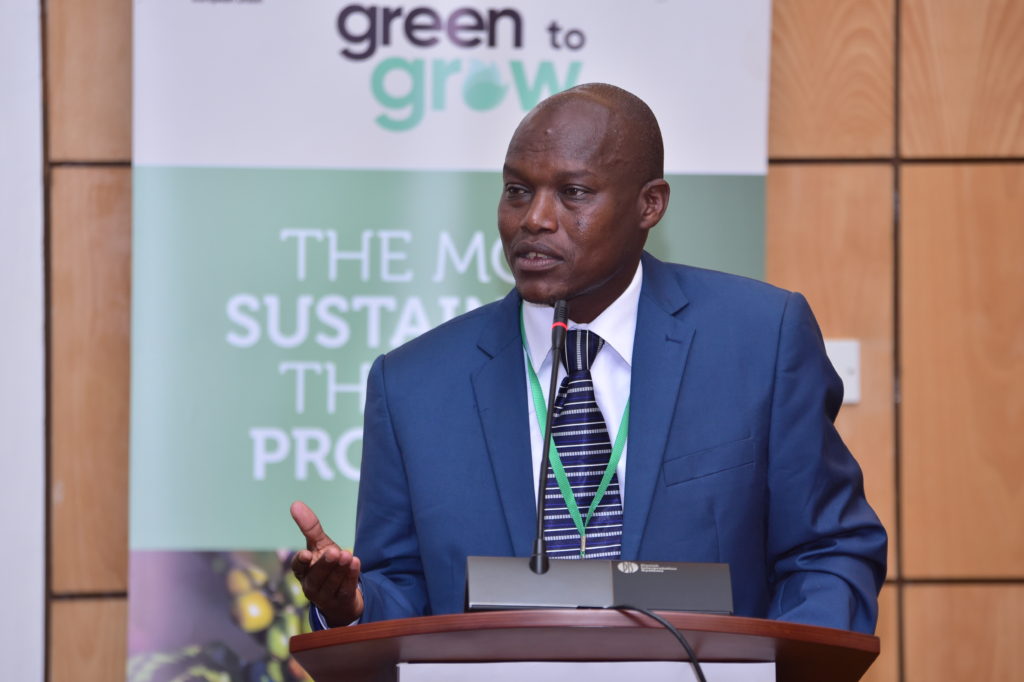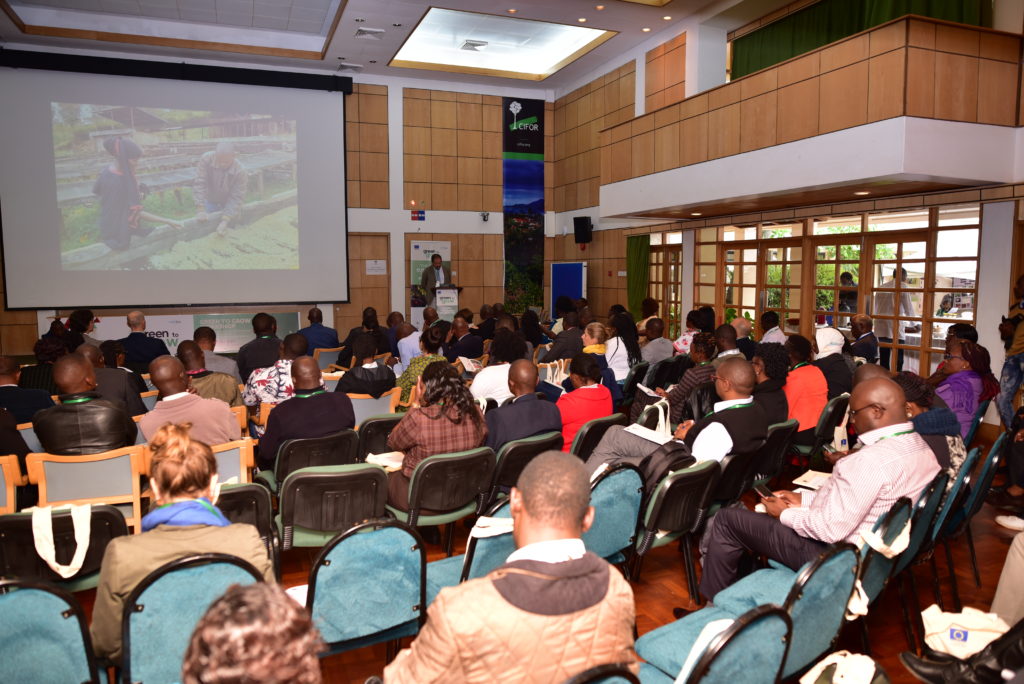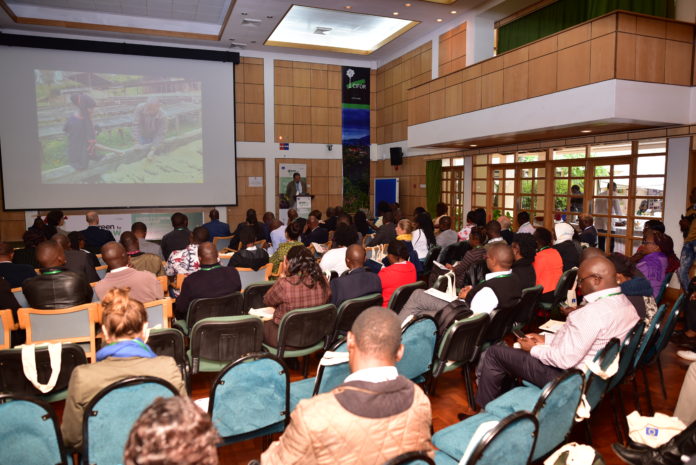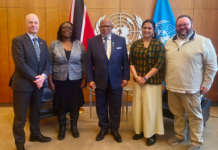By Clifford Akumu
Nairobi, Kenya: Micro, Small and Medium Enterprises in the coffee, mango, and dairy value chain have been urged to adopt green business development models to access niche markets.
Kenya National Chamber of Commerce and Industry (KNCCI) president, Richard Ngatia, said the project has the potential of increasing the country’s green growth and economic opportunities.
“To secure a sustainable future, we must transform our consumption and production patterns,” Ngatia told delegates attending a Green to Grow regional sector meeting under the SWITCH Africa Green program on sustainable agriculture in Nairobi.
Mr. Ngatia further called upon small and large businesses to integrate sustainable productions and consumption practices that will enhance agricultural transformation and food security.
“We are encouraging African governments to provide the coherent policy framework and adequate incentives to facilitate the transition,” Ngatia said.
Green to Grow is a European Union-funded project implemented under the flagship of SWITCH Africa Green program.
It is a three-year project implemented by a consortium of eight organizations led by the Etimos Foundation. The project focuses on disseminating sustainable consumption and production practices (SCPs) to MSMEs along the mango, dairy and coffee food value chains in Kenya.
It provides capacity building, network facilitation and access to finance as a driver for the adoption of SCP methods, technologies and sustainable green business practices.
The project has been supported by the EU to the tune of €1.3 million.
The project, now in its second year, has seen 120 MSMEs in the coffee, mango and dairy sectors benefit from business model training and sustainable consumption and production skills development.
Marco Santori, President Etimos Foundation called upon developing countries to expand their agriculture sustainably by adopting environmentally friendly practices.
Santori noted rural communities must receive innovative technologies to tackle climate change woes.
“We need our rural communities to receive innovative technologies that will enable them to adapt to a changing climate and contribute to improved livelihoods and earnings,” Santori said.
He further noted that enterprises must seek to overcome the vagaries of changing weather patterns while at the same time striving to become more competitive domestically and internationally.
“Wise management of the earth’s resources is key for our common future,” added Santori.

Thomas Yatich, EU program manager for environment, natural resources and climate change said the project aims to create broader environment sustainability.
“Our aim is to enable farmers to achieve sustainable livelihoods.”
“We also want to build the capacity of farmers and MSMEs to meet certification standards for them to access foreign markets, the transition to low-carbon technologies, protect biodiversity and alleviate poverty,” said Yatich.

In the coffee value chain, for example, says Yatich, the project has trained farmers on the need to adopt organic coffee production that is not harmful to the environment and through this they have been able to access niche markets.
“We hope the government and donors will support farmers to go green apart from just achieving food security.”
“We must be able to protect our natural resources. For instance, if we do not take care of the bees, food production will be staring at a gloomy future,” added Yatich.
Mr. Joseph Mugo, a beneficiary of the project in the coffee value chain and a member of Kirinyaga Coffee Farmers Association narrates, “We have really benefited from the green to grow the project. Last year we started selling our coffee directly to Belgium.”
Accessing finance for MSME’s has always been a challenge.
An SME Competitiveness Report released recently by the International Trade Centre, Ministry of Trade and Kenya National Chamber of Commerce and Industry (KNCCI) showed that 33 percent small traders avoid commercial bank loans despite their need for credit.
But with their unique financing needs, MSMEs still shy away from credit thanks to collateral requirements, high-interest rates, and complex application procedures.
Davide Libralesso, Head of Programmes and International Relations at Etimos Foundation said the organization with its partners aims to set up a dedicated financial instrument to help farmers navigate the challenges of accessing finance.
“The idea with this project is to eventually go beyond the usual credit facilities but to be able to access a range of financial tools to help boost MSMEs productivity,” said Libralesso.
Since its inception, the Green to Grow project has seen MSMEs record a 62 percent jump in revenue growth according to a report on the evaluation of the first batch of beneficiaries.
During phase one of the program, over 3,000 MSMEs have been supported in the uptake of sustainable consumption and production practices in agriculture, manufacturing, tourism and waste management sectors through funding from the European Union.














